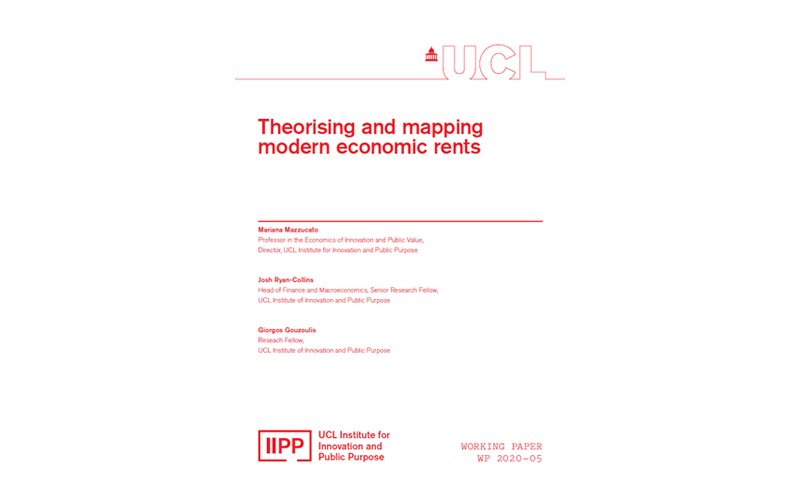Theorising and mapping modern economic rents

29 June 2020
UCL Institute for Innovation and Public Purpose (IIPP) Working Paper Series: IIPP WP 2020-13
Authors
- Mariana Mazzucato | Professor in the Economics of Innovation and Public Value, Director, UCL Institute for Innovation and Public Purpose
- Josh Ryan-Collins | Head of Finance and Macroeconomics, Senior Research Fellow, UCL Institute of Innovation and Public Purpose
- Giorgos Gouzoulis | Research Fellow, UCL Institute of Innovation and Public Purpose
Reference
Mazzucato, M., Ryan-Collins, J. and Gouzoulis, G. (2020). Theorising and Mapping Modern Economic Rents. UCL Institute for Innovation and Public Purpose, Working Paper Series (IIPP WP 2020-13). Available at: https://www.ucl.ac.uk/bartlett/public-purpose/wp2020-13
Abstract
There is increasing consensus that modern capitalist economies suffer from excessive rent extraction. The neoclassical approach sees rents as emerging from market imperfections—often created by state intervention—which lead to prices above the optimum equilibrium level. Using a mark-up pricing framework, we argue instead that rising rents—which increase the underlying cost structure of the economy through higher overheads—may also induce redistribution of income between capital and labour without price changes. This approach provides a framework for understanding how rising modern economic rents are related to increasing inequality and declining investment and innovation, contributing to ‘secular stagnation’. We then illustrate how rents have become permanent rather than transient in a range of sectors in recent decades and consider how we might better recognise and reduce such rents via policy interventions.
 Close
Close

